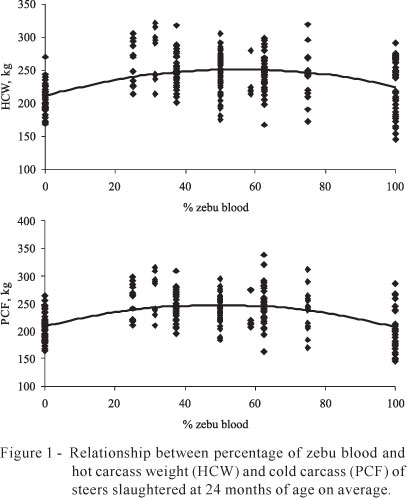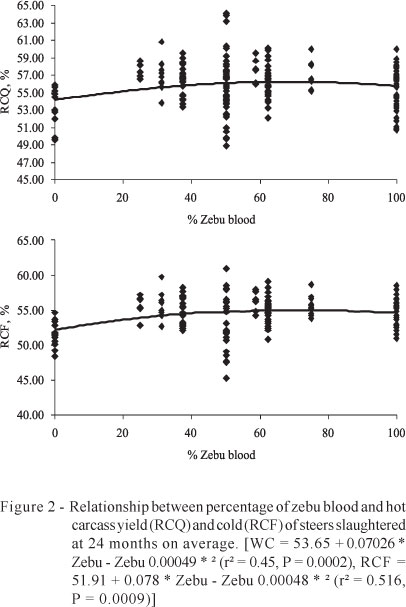In order to evaluate the effect of the different percentages of zebu blood in the genotype of crossbred steers on carcass traits, a meta-analysis was carried out, using 30 studies conducted in Brazil that have been published since the year 2000. The parameters evaluated were hot carcass weight (221 estimates), cold carcass weight (232), hot carcass (236) and cold carcass yield (223), subcutaneous fat thickness (238) and the percentages of saw cut (233), forequarter (234) and sidecut (246 estimates). Initially, exploratory analysis was performed for each of the variables for detection of publication vices through the dispersion of observations by pointing out the outliers eliminated. Normality tests were normal and the data were subjected to analysis of variance for the regression study, which were assessed to the third degree. Weights of hot carcass and cold carcass, hot and cold carcass yield and the percentage of saw cut had a quadratic effect on animals with the presence of zebu blood, indicating superiority of crossbred animals. The regression equation showed that 66; 50; 72; 81 and 59% of zebu in crossbred animals showed higher hot and cold carcass weight, hot and cold carcass percentage and saw cut, respectively. Fat thickness was not influenced by the degree of zebu in the genotype. The percentage of forequarter has a positive response by increasing the degree of zebu in the genotype, while the sidecut has a negative answer. The crossbreeding between zebu and European breeds provides carcasses with better quality than purebred animals.
carcass yield; crossbreeding; heterosis







